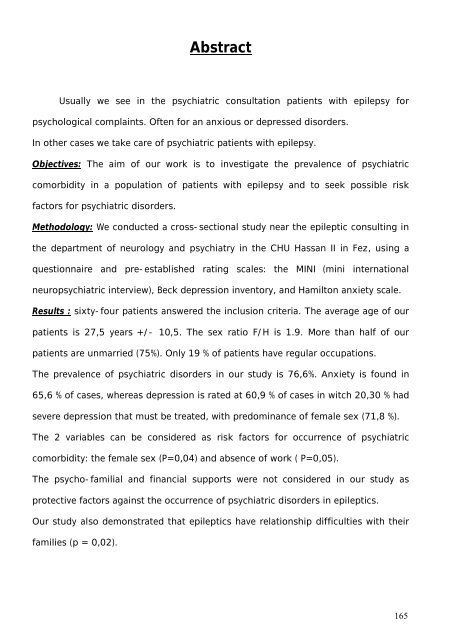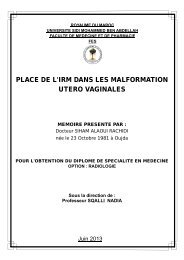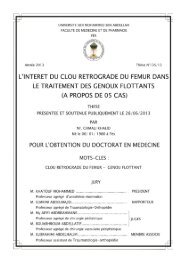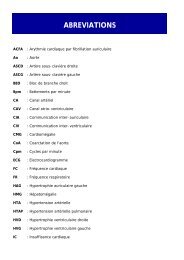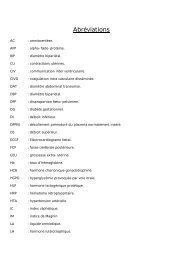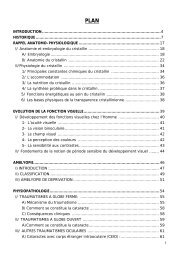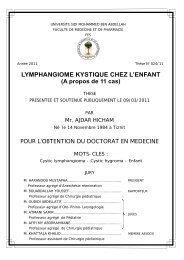Abréviations - Faculté de Médecine et de Pharmacie de Fès
Abréviations - Faculté de Médecine et de Pharmacie de Fès
Abréviations - Faculté de Médecine et de Pharmacie de Fès
Create successful ePaper yourself
Turn your PDF publications into a flip-book with our unique Google optimized e-Paper software.
Abstract<br />
Usually we see in the psychiatric consultation patients with epilepsy for<br />
psychological complaints. Often for an anxious or <strong>de</strong>pressed disor<strong>de</strong>rs.<br />
In other cases we take care of psychiatric patients with epilepsy.<br />
Objectives: The aim of our work is to investigate the prevalence of psychiatric<br />
comorbidity in a population of patients with epilepsy and to seek possible risk<br />
factors for psychiatric disor<strong>de</strong>rs.<br />
M<strong>et</strong>hodology: We conducted a cross-sectional study near the epileptic consulting in<br />
the <strong>de</strong>partment of neurology and psychiatry in the CHU Hassan II in Fez, using a<br />
questionnaire and pre-established rating scales: the MINI (mini international<br />
neuropsychiatric interview), Beck <strong>de</strong>pression inventory, and Hamilton anxi<strong>et</strong>y scale.<br />
Results : sixty-four patients answered the inclusion criteria. The average age of our<br />
patients is 27,5 years +/- 10,5. The sex ratio F/H is 1.9. More than half of our<br />
patients are unmarried (75%). Only 19 % of patients have regular occupations.<br />
The prevalence of psychiatric disor<strong>de</strong>rs in our study is 76,6%. Anxi<strong>et</strong>y is found in<br />
65,6 % of cases, whereas <strong>de</strong>pression is rated at 60,9 % of cases in witch 20,30 % had<br />
severe <strong>de</strong>pression that must be treated, with predominance of female sex (71,8 %).<br />
The 2 variables can be consi<strong>de</strong>red as risk factors for occurrence of psychiatric<br />
comorbidity: the female sex (P=0,04) and absence of work ( P=0,05).<br />
The psycho-familial and financial supports were not consi<strong>de</strong>red in our study as<br />
protective factors against the occurrence of psychiatric disor<strong>de</strong>rs in epileptics.<br />
Our study also <strong>de</strong>monstrated that epileptics have relationship difficulties with their<br />
families (p = 0,02).<br />
165


